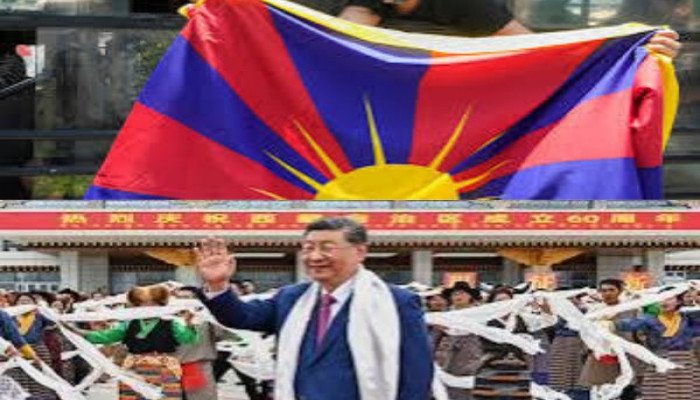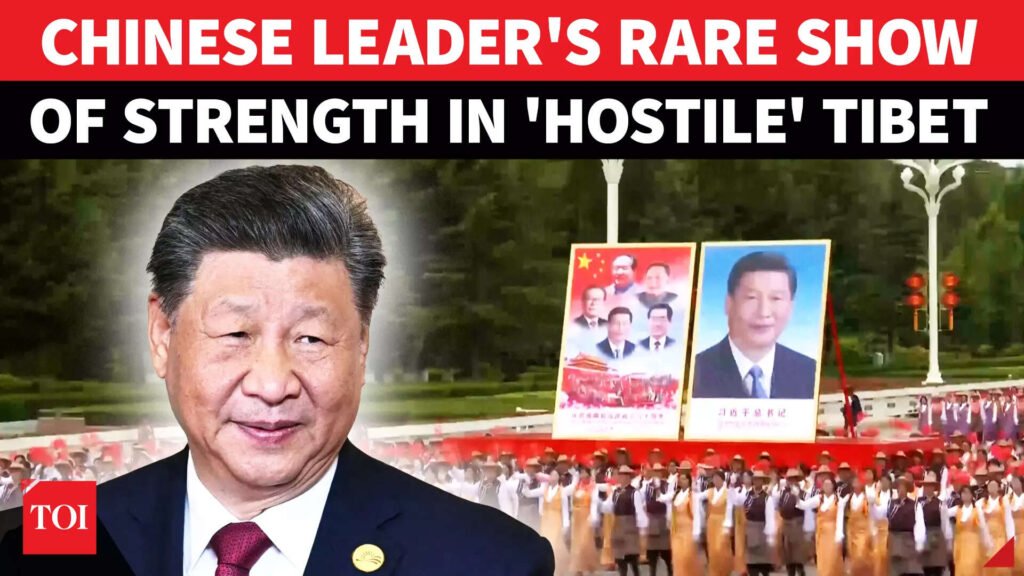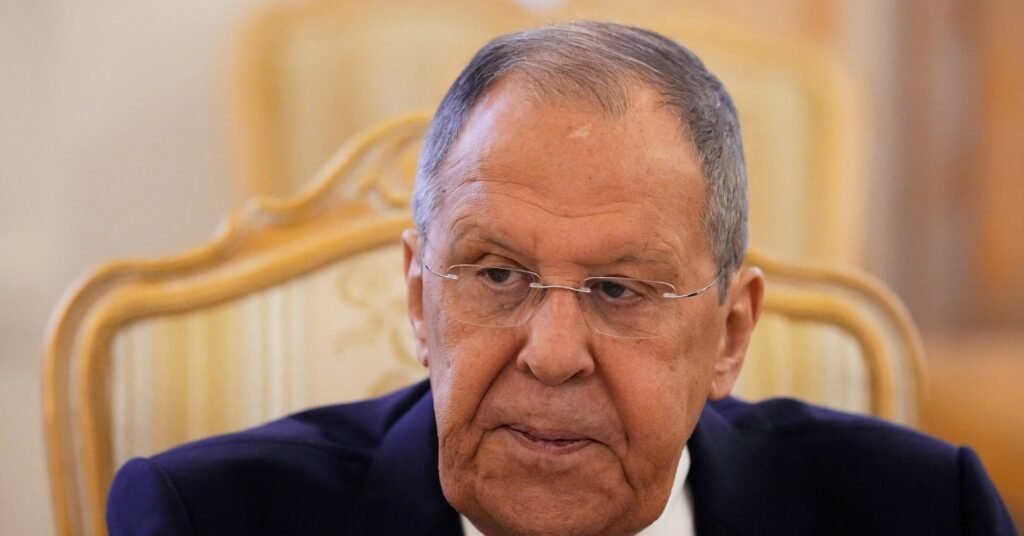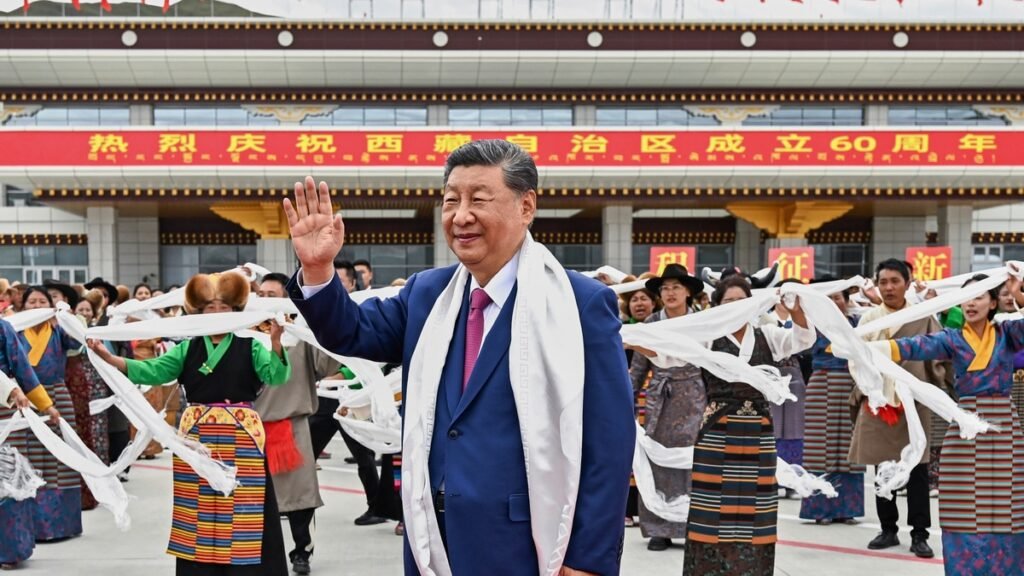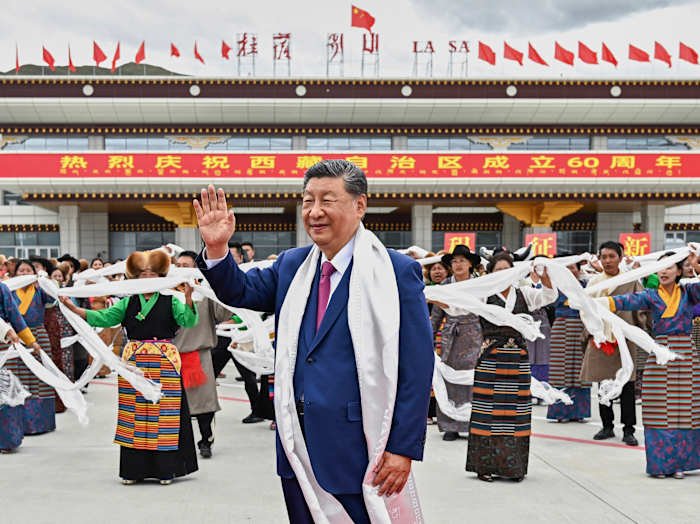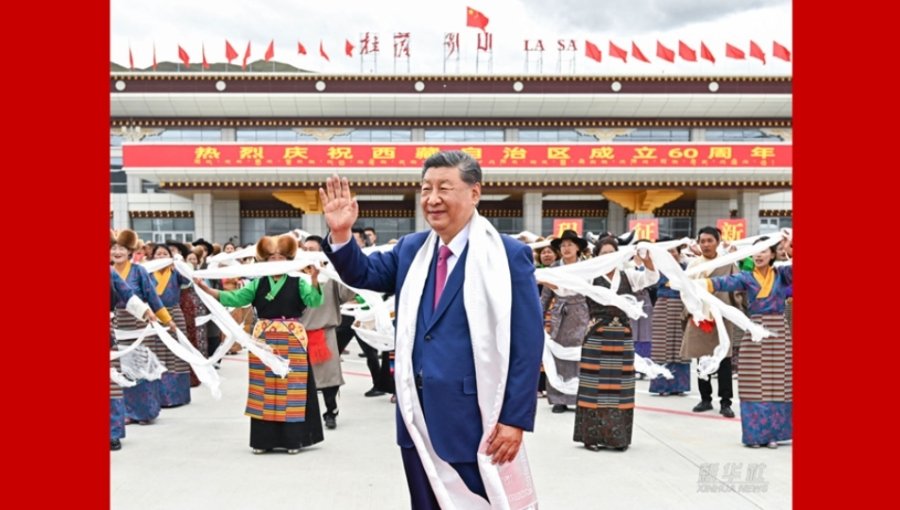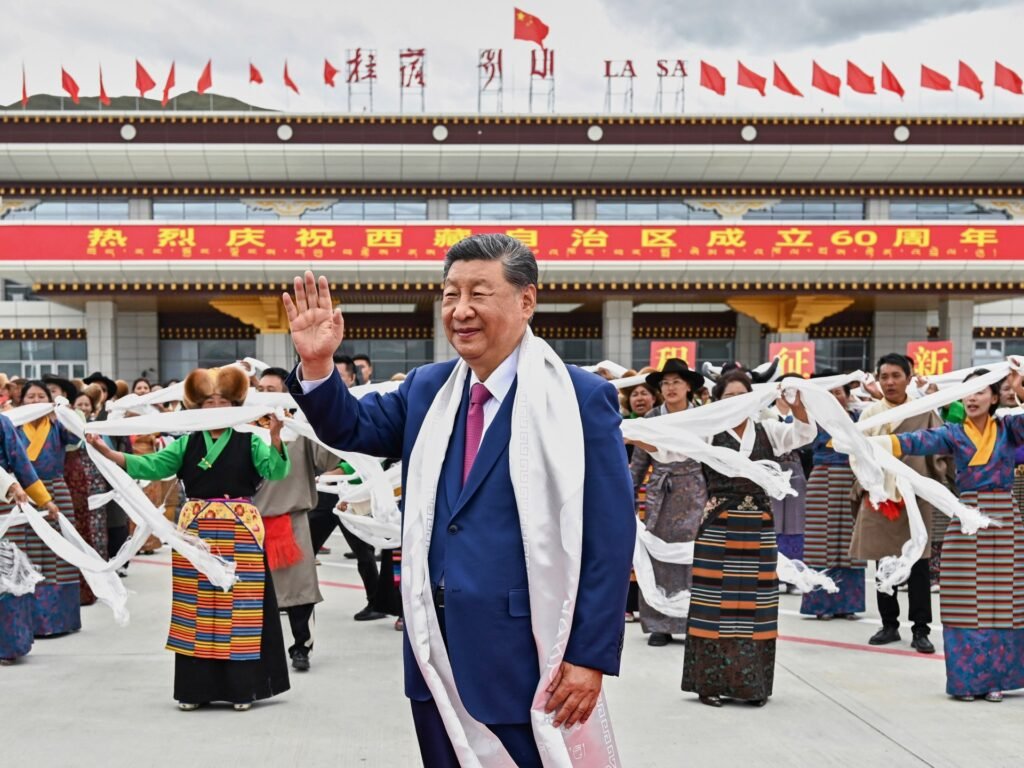Chinese leader Xi Jinping visited Tibet on Wednesday in a rare and unannounced trip to mark the 60th anniversary of the founding of the Tibet Autonomous Region.
The Chinese leader called for building a “modern socialist” Tibet that is “united, prosperous, civilised, harmonious and beautiful”.
According to China’s state-owned Xinhua news agency, Mr Xi arrived in Lhasa, Tibet’s regional capital, where he was welcomed by crowds of different ethnic groups waving flowers and dancing to “joyful rhythms”.
His visit made him the first Chinese president ever to take part in the once-a-decade activities. During the event he urged tighter oversight of “religious affairs” in the region and emphasised the need to “guide Tibetan Buddhism to adapt to socialist society”.
“To govern Tibet and make it stable and prosperous, the priority must be maintaining Tibet’s political order, social stability, ethnic unity and religious harmony,” Mr Xi said, according to an official summary of his speech.
Mr Xi reportedly also said that “we must unremittingly use the new era of socialism with Chinese characteristics to unite the hearts and minds of the people, and guide cadres and the masses of all ethnic groups to listen to and follow the (Communist) Party”.
The visit comes at a time of uncertainty for Tibetan Buddhism due to concerns over the health and succession of the 14th Dalai Lama, who fled Tibet to India after the Chinese military occupation beginning in 1951. Mao Zedong established the Tibet Autonomous Region in 1965, after which Tibetans were subjected to decades of repression characterised by the destruction of monasteries and jailing of monks.
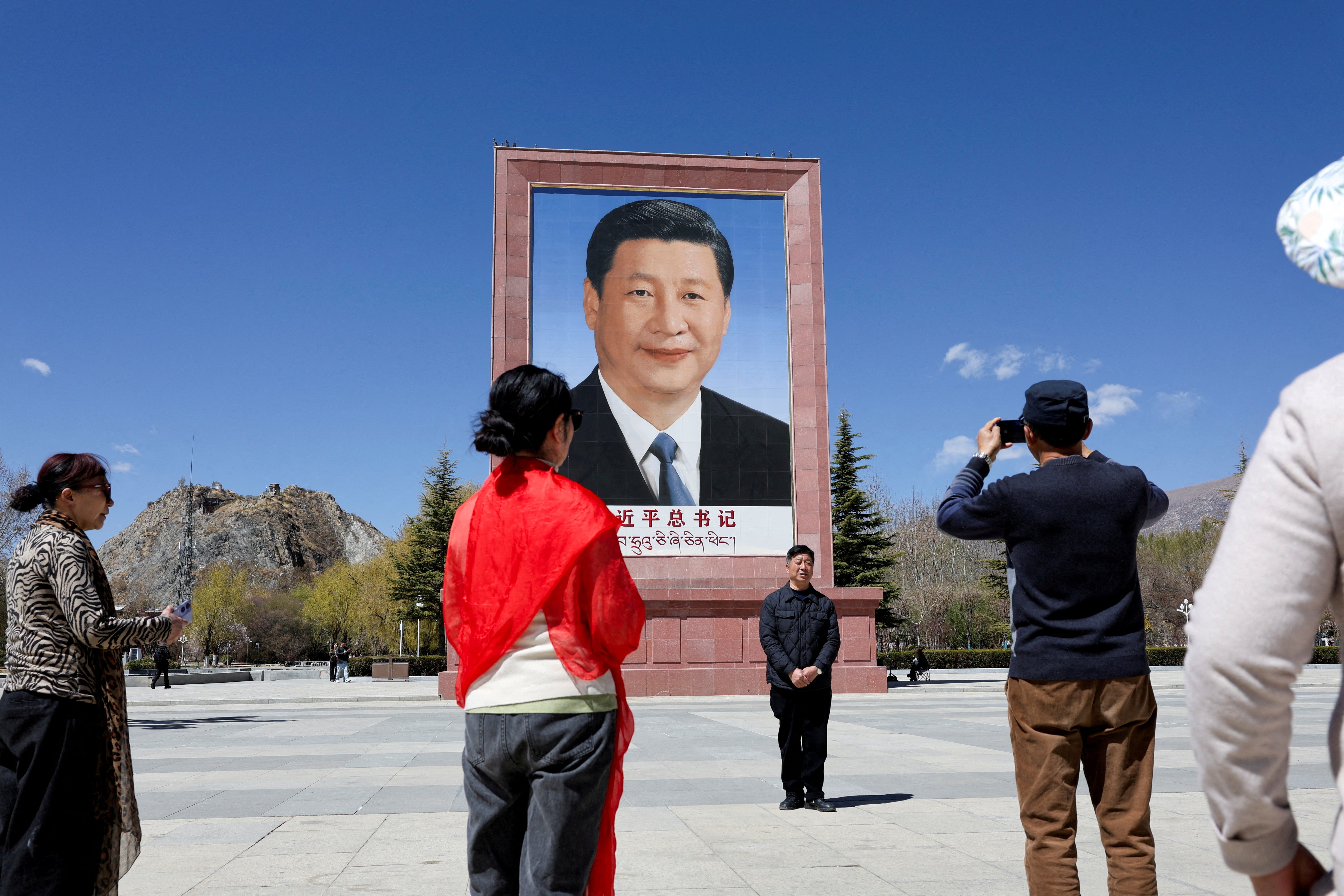
More recently, Beijing has tightened its grip through mass migration of the majority Han Chinese to the high-altitude region, strict limits on foreign access, the separation of Tibetan children into Mandarin-only boarding schools, and sweeping curbs on any political or cultural expression beyond China’s control.
In 1959, after a failed uprising against Chinese rule, the 14th Dalai Lama fled Tibet and sought asylum in India, sparking a wave of Tibetan exile and the formation of a government-in-exile in Dharamshala in northern India’s Himachal Pradesh. China regards the Dalai Lama as a separatist, although he publicly advocates for a fully autonomous Tibet within China. He remains a powerful symbol of Tibetan identity.
Critics argue that repression in Tibet has grown more entrenched and far-reaching since Beijing crushed protests in 2008, even as China touts poverty reduction and infrastructure gains as evidence of progress.
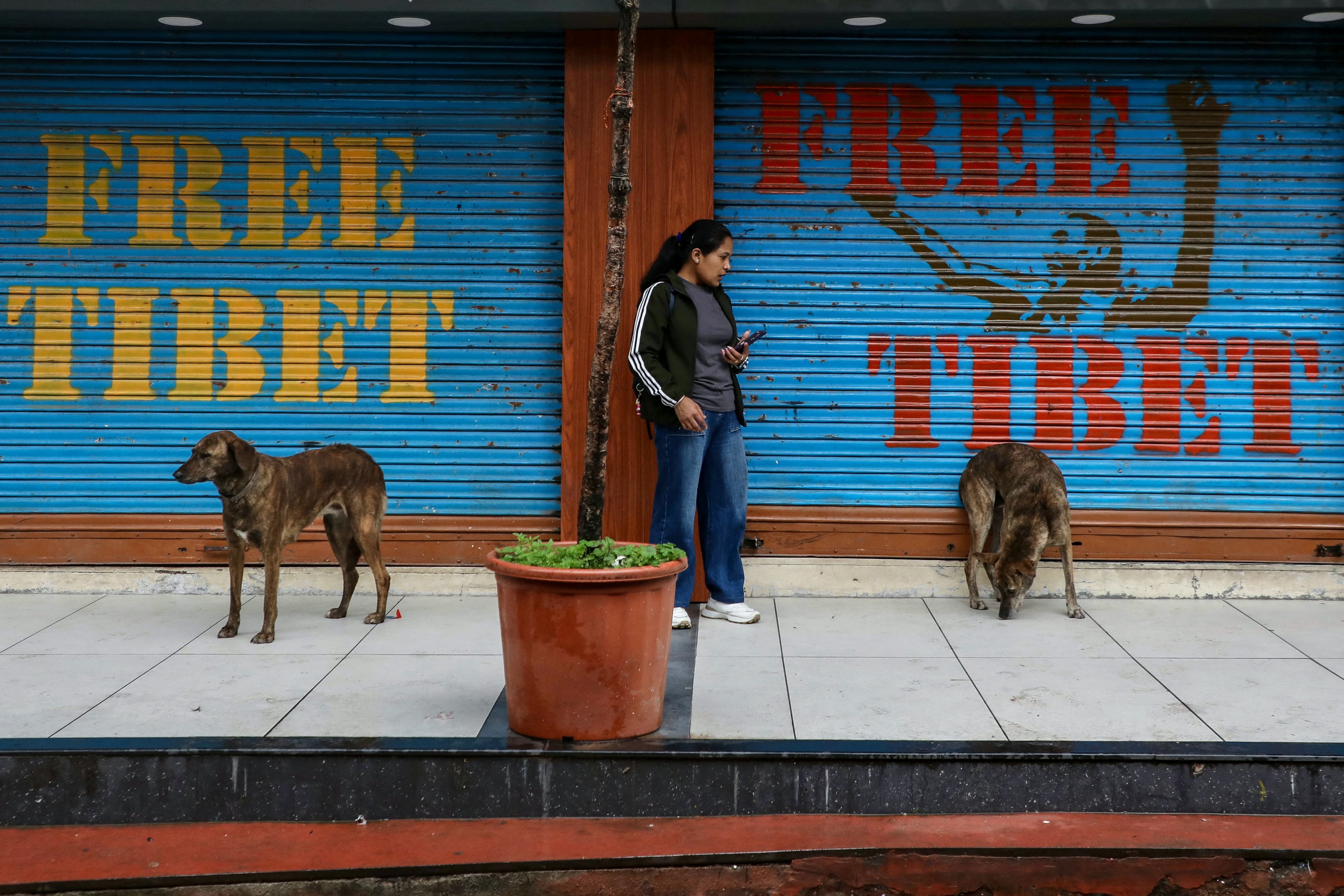
In Lhasa, Mr Xi used his visit to Tibet – his second since he became president – to promote major infrastructure projects, including the $167bn Yarlung Tsangpo mega-dam and the Sichuan-Tibet railway, according to Bloomberg.
He also called for developing agriculture, clean energy, and tourism.
The mega-dam, one of the world’s largest-ever projects, is seen as a legacy-defining gamble for Mr Xi – aimed at boosting China’s slowing economy, tightening control over Tibet, and expanding influence abroad.
Mr Xi also stressed political stability, ethnic unity, and religious harmony as essential for Tibet’s future, even as Beijing faces criticism for heavy restrictions in the region similar to those in Xinjiang.
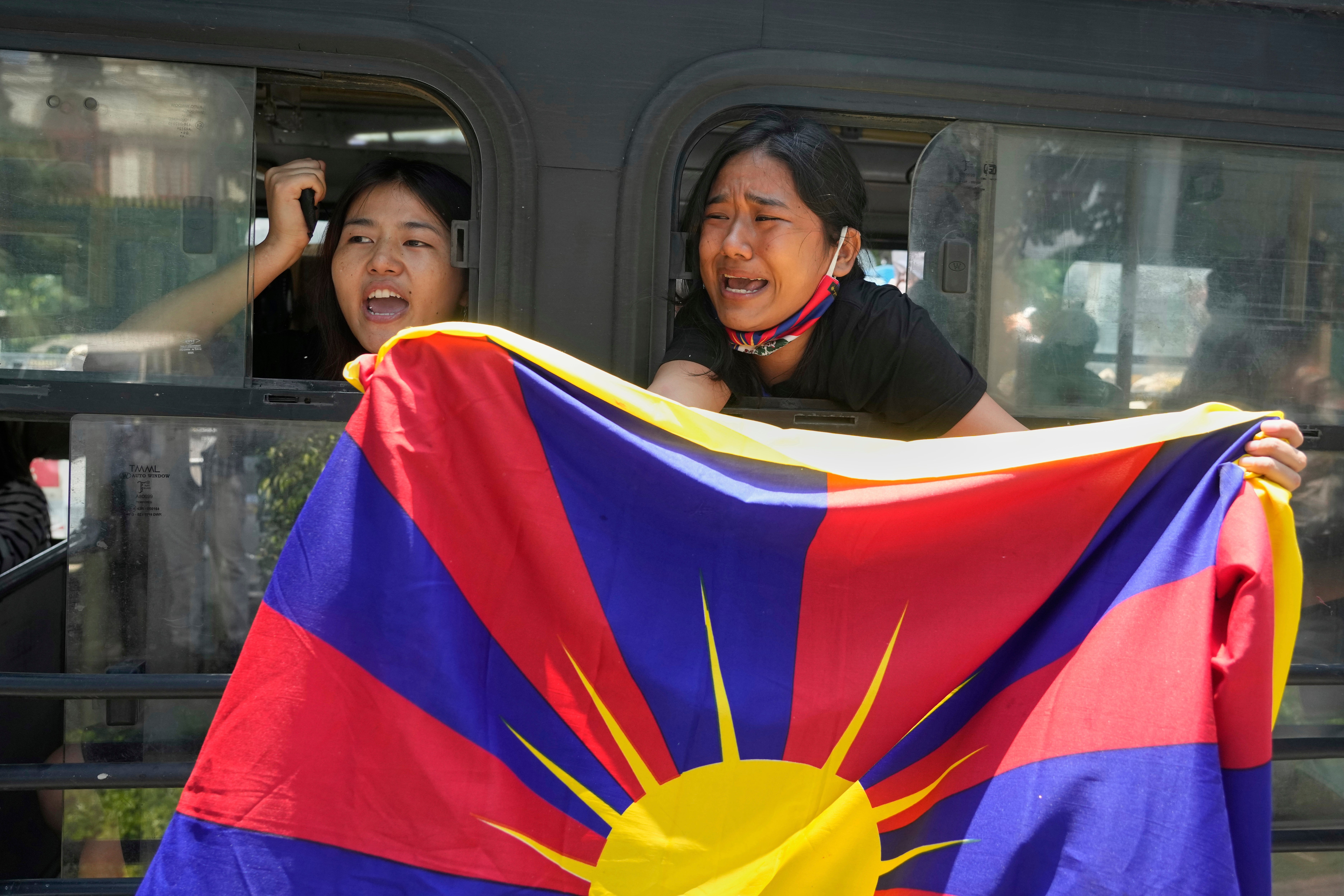
“This unprecedented and high-ranking delegation to Tibet on the 60th anniversary of the creation of a so-called Tibet Autonomous Region reflects China’s deep insecurity in Tibet and the need to perform leadership and assert their authority in Tibet,” Tencho Gyatso, president of the International Campaign for Tibet, said in a statement.
He added: “It is important to remember that Xi Jinping is in Tibet to project strength, stability, and legitimacy on the 60th anniversary of the creation of a Tibetan ‘Autonomous’ Region that denied Tibetans autonomy at its inception and is now even working to erase Tibet by replacing the name ‘Tibet’ with its Chinese term ‘Xizang’.”
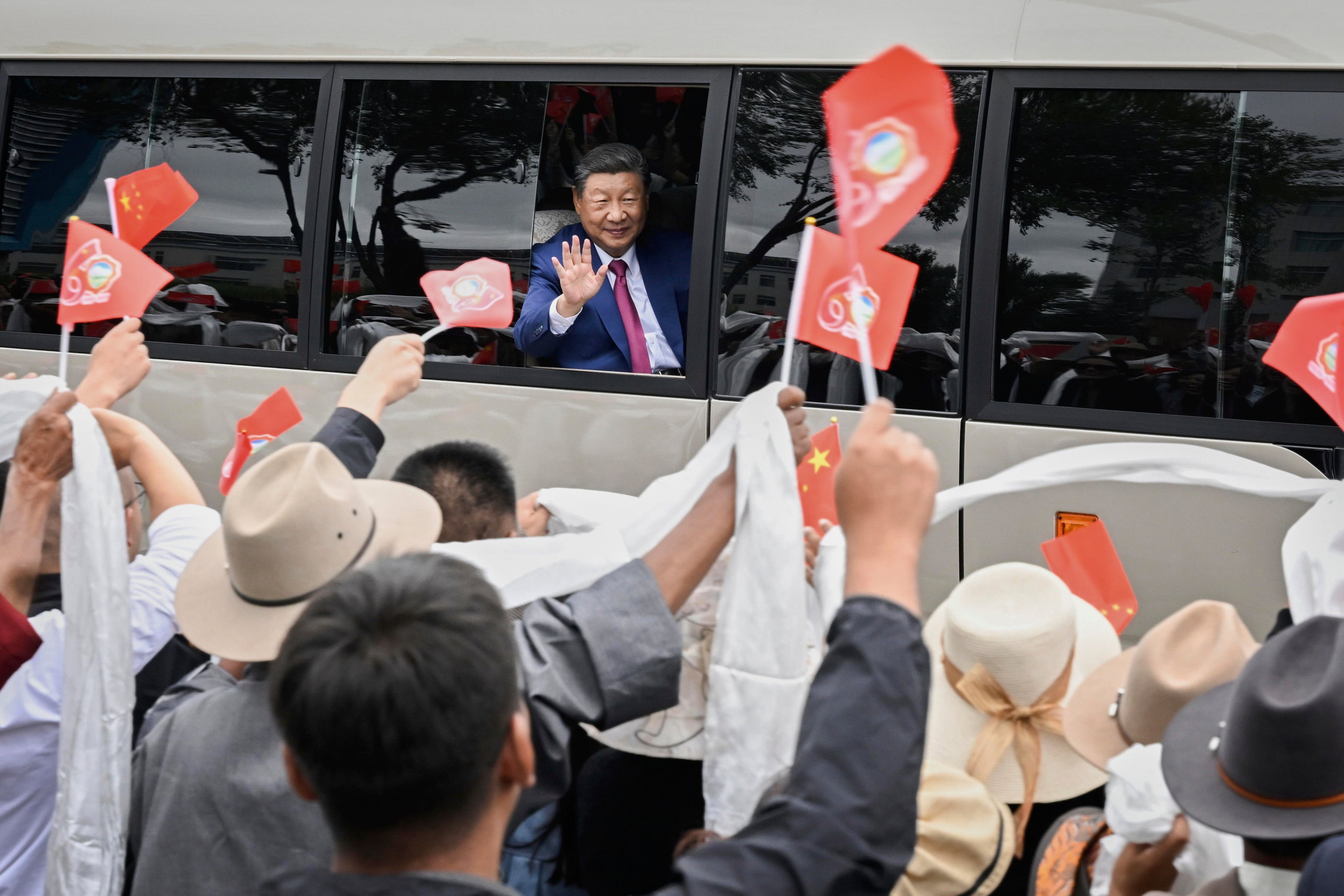
He continued: “Tibet remains the constant reminder to the world that China offers a dysfunctional, immoral and fragile governance model that rules by fear.”
Tseten Samdup Chhoekyapa, an official from the Dalai Lama’s office in northern India, told The New York Times that “the Chinese have found themselves on the back foot”. He added that Mr Xi’s visit was another bid to “legitimise its occupation of Tibet”, particularly after the Dalai Lama reaffirmed that his successor would be chosen in the traditional way.
Several Tibetan rights groups said the visit was aimed at glossing over Mr Xi’s human rights record in the region.
“For Tibetans, the anniversary of the People’s Republic of China’s creation of the Tibet Autonomous Region is no cause of celebration, but a painful reminder of China’s colonial occupation,” Dorjee Tseten, the Asia Program Manager at the Tibet Action Institute and a member of Tibet’s exiled Parliament, told the outlet.
“Tibet remains one of China’s greatest challenges, and Tibetans will never accept Beijing’s imposed succession plan for the Dalai Lama.”

